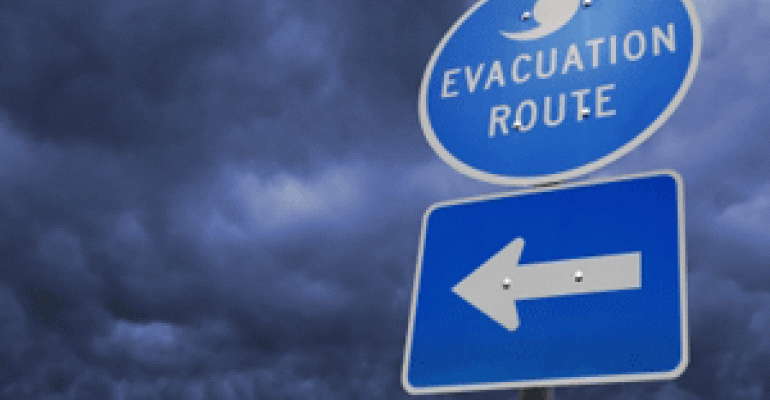
The week after Hurricane Irene swept through the mid-Atlantic and Northeast states, one of John Papa’s clients in Caldwell, N.J., who was getting ready to retire from her position at Verizon, came into his office to discuss her retirement. Flooding had caused over $50,000 in damages to her home, and Papa, president of Diversified Planning Strategies, recommended she delay her retirement for at least a year to cover the expenses.
Up and down the eastern seaboard, people sustained damages to their homes, cars, and businesses, causing unwanted expenses, some not covered by insurance. For some wealth managers, it meant fielding calls from clients or prospects needing their financial expertise. For others, the storm served as a reminder of the importance of being financially prepared for a natural disaster.
Dipping Into the Nest Egg
Papa, whose firm provides retirement planning, said many of his clients in Northern New Jersey experienced major damages, and called him up to help them pull money out of their 401(k)s and IRAs to cover the expenses. And with the recent market volatility, Papa’s clients are being hit with a double whammy.
“It’s not a great time to be pulling money out, but they’re forced to,” Papa said.
In these situations, Papa said his first priority is to protect clients’ assets from market volatility so the withdrawals aren’t as bad. To get that principle protection, he uses liquid money market funds, fixed annuity contracts and fixed indexed annuities with income riders.
Eric Zoldan, senior vice president of investments at JHS Capital Advisors in New York, said that if a client has to pull money out, they should do so from a taxable account to be more tax-efficient, rather than a 401(k), IRA or taking out a loan against their 401(k). He also said clients should maintain their investment policies when these types of disasters occur.
Helping Families
Following the disaster, Christian Koch, president and chief investment officer of fee-only firm KAM South, in Atlanta, Ga., offered free consultation to families affected by the hurricane. He said he received calls from families in Virginia, New Jersey and South Carolina asking about things from home owner’s policies and risk management to insurance coverage and cash flow management.
Although Atlanta was not impacted by the storm, Koch felt he could be a helpful resource for people who were affected. When people experience significant life events, they often rethink their financial situations and goals, Koch said. “In any event like this, people take account of what they have,” he said. “Their material valuables may not be as important as they thought.”

Being Prepared
For John Robinson, founder of RIA firm Financial Planning Hawaii, disaster preparedness and emergency planning have been a central part of his business. He is based in Honolulu, which is subject to tsunamis, hurricanes and earthquakes. Although he did not have any clients affected by Irene, he has been an outspoken advocate of making emergency preparedness part of mainstream financial planning. In disasters like these, the biggest mistakes are not so much about what investments you have, but rather about the failure to have basic risks covered, such as titling of assets and liability and disability coverage.
Robinson said there’s a need for greater critical thinking when it comes to how clients store their financial documents. People often believe financial documents will be safe if stored outside the home, such as at work, but Robinson said there was one person who lost both their home and business in Hurricane Irene. He recommends storing financial documents digitally.
Koch recommends clients have three months worth of current income in the bank for individuals and six months worth of income for families in case of emergencies such as Irene. This emergency funding should be in CDs or liquid, marketable securities.
Although he had clients in the low-lying areas, Tom McGuigan, an advisor with RIA firm Burns Advisory Group in Old Lyme, Conn., said he believes his clients didn’t have any financial problems because of the firm’s emergency preparedness measures. Prior to the hurricane, McGuigan said he encouraged clients to maintain cash reserves. Burns Advisory Group also set up a system for getting clients’ money to them. In an emergency, a client’s money can be electronically transferred from Charles Schwab directly to the client’s bank, but the firm didn’t have to take that measure this time around.






